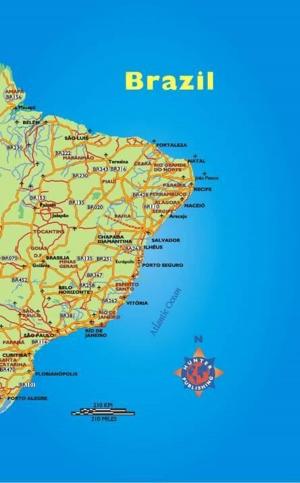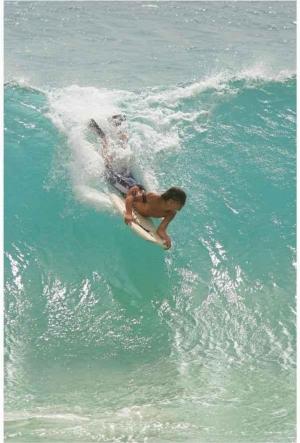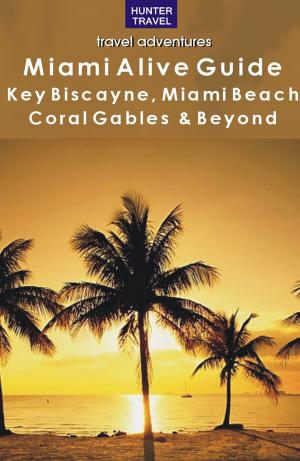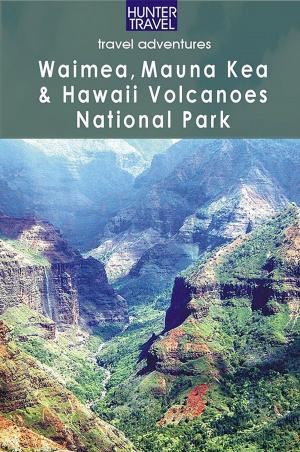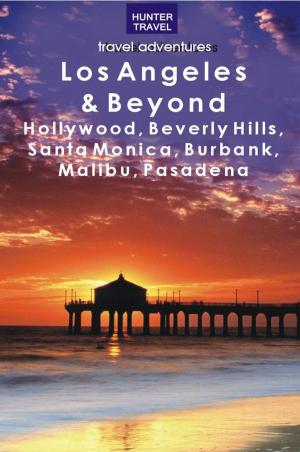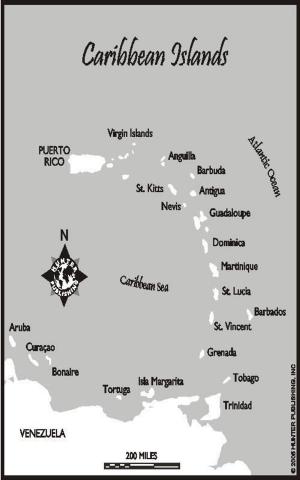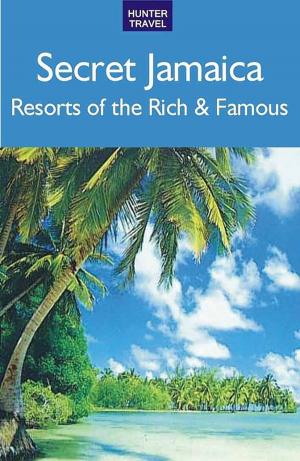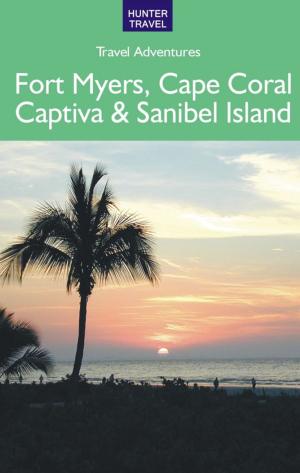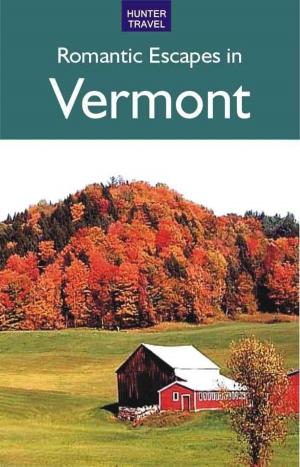Ireland - The North: Belfast, Londonderry, The Sperrins, Armagh & the Kingdoms of Down
Nonfiction, Travel, Europe, Great Britain| Author: | Tina Neylon | ISBN: | 9781556500794 |
| Publisher: | Hunter Publishing | Publication: | October 29, 2012 |
| Imprint: | Language: | English |
| Author: | Tina Neylon |
| ISBN: | 9781556500794 |
| Publisher: | Hunter Publishing |
| Publication: | October 29, 2012 |
| Imprint: | |
| Language: | English |
Northern Ireland has a fascinating variety of landscapes. Its tourism areas correspond roughly to the Six Counties that make up the North: the drama of the Causeway Coast and its inland Glens; Derry City and County Londonderry; the Sperrins mountains and surrounding moors, taking in County Tyrone and parts of Londonderry; the Kingdoms of Down; the city of Armagh and its county; and the Fermanagh-Lakeland region. The capital, Belfast, is on the border between County Antrim and County Down. Belfast's setting is very attractive, nestling in a semicircle of hills, where the River Lagan enters Belfast Lough. About a third of the population of Northern Ireland half a million people live here. It was in Belfast that the Titanic was built and the dock where that was done has been preserved as it was, along with the cranes and equipment used. Even the offices where the ship was designed remain as they were and can be toured. And then there is County Antrim, which is absolutely beautiful. Its coast, from the busy port of Larne to the resorts of Portrush and Portstewart, is dotted with beaches and rocky inlets. Inland, between Glenarm and Ballycastle, there are nine steep-sided glens, which descend from the inland plateau to the sea. In addition to wonderful scenery, with forests, rivers and waterfalls, the landscape is dominated by spectacular ruins of fortresses built by Gaelic chieftains and Norman invaders. Next comes Derry, the second-largest city in Northern Ireland. It stands on a hill on the estuary of the river Foyle, which divides it in two. The area called Cityside includes at its core the only intact medieval walled city in Ireland or the British Isles. Facing it across the river is the Waterside area. Saint Columba founded a monastery here in 546. Take a walk along the walls of the medieval city. Criss-crossed by mountains, moorland and inland waters, the Sperrins has been designated an Area of Outstanding Natural Beauty. What makes it such a wonderful region to visit is that it is so peaceful. Tyrone is the largest county in the North yet has the smallest population, so its roads are very quiet.There are also nature trails and forest parks to explore. From the 18th to the last century, a huge number of its people left to seek new lives in North America and there are many places to visit closely associated with them, including the ancestral family homes of many US Presidents and other prominent figures, such as the Mellons, who founded Pittsburgh, Davy Crockett, President Woodrow Wilson and Ulysses S. Grant, 18th US President. Next comes County Down, where St. Patrick settled. He landed for the first time in Ireland on the shore of Strangford Lough in 442 AD and is believed to be buried at Downpatrick. County Down is a great destination for anyone interested in outdoor activities, such as walking, golfing, riding, or watersports. The region is dotted with prehistoric monuments, including standing stones, cairns, and dolmens dating from around 3000 BC. There are also fascinating stately homes and their wonderful gardens, forest parks and other beautiful sights to enjoy. County Armagh has much to see as well and includes Armagh City as well as the other main towns of Craigavon, Lurgan and Portadown. Visit St. Patrick's Church of Ireland Cathedral, built on the site of the saint's church. Brian Boru, who drove the Norsemen out of Ireland in 1014, is said to be buried in its churchyard, and among other interesting monuments is an 11th-century high cross. In Fermanagh-Lakeland, there are many little wooded islands in the lakes, with evidence of ancient cultures and ruins from the Early Christian era. These are just a few of the special places described in the North of Ireland. All of the hotels and places to eat are detailed as well, plus the recommended hikes, walking tours, bike trips, boat tours and more. Entertainment, shopping, how to get around, sightseeing and much more are described as well. Color photos and maps throughout.
Northern Ireland has a fascinating variety of landscapes. Its tourism areas correspond roughly to the Six Counties that make up the North: the drama of the Causeway Coast and its inland Glens; Derry City and County Londonderry; the Sperrins mountains and surrounding moors, taking in County Tyrone and parts of Londonderry; the Kingdoms of Down; the city of Armagh and its county; and the Fermanagh-Lakeland region. The capital, Belfast, is on the border between County Antrim and County Down. Belfast's setting is very attractive, nestling in a semicircle of hills, where the River Lagan enters Belfast Lough. About a third of the population of Northern Ireland half a million people live here. It was in Belfast that the Titanic was built and the dock where that was done has been preserved as it was, along with the cranes and equipment used. Even the offices where the ship was designed remain as they were and can be toured. And then there is County Antrim, which is absolutely beautiful. Its coast, from the busy port of Larne to the resorts of Portrush and Portstewart, is dotted with beaches and rocky inlets. Inland, between Glenarm and Ballycastle, there are nine steep-sided glens, which descend from the inland plateau to the sea. In addition to wonderful scenery, with forests, rivers and waterfalls, the landscape is dominated by spectacular ruins of fortresses built by Gaelic chieftains and Norman invaders. Next comes Derry, the second-largest city in Northern Ireland. It stands on a hill on the estuary of the river Foyle, which divides it in two. The area called Cityside includes at its core the only intact medieval walled city in Ireland or the British Isles. Facing it across the river is the Waterside area. Saint Columba founded a monastery here in 546. Take a walk along the walls of the medieval city. Criss-crossed by mountains, moorland and inland waters, the Sperrins has been designated an Area of Outstanding Natural Beauty. What makes it such a wonderful region to visit is that it is so peaceful. Tyrone is the largest county in the North yet has the smallest population, so its roads are very quiet.There are also nature trails and forest parks to explore. From the 18th to the last century, a huge number of its people left to seek new lives in North America and there are many places to visit closely associated with them, including the ancestral family homes of many US Presidents and other prominent figures, such as the Mellons, who founded Pittsburgh, Davy Crockett, President Woodrow Wilson and Ulysses S. Grant, 18th US President. Next comes County Down, where St. Patrick settled. He landed for the first time in Ireland on the shore of Strangford Lough in 442 AD and is believed to be buried at Downpatrick. County Down is a great destination for anyone interested in outdoor activities, such as walking, golfing, riding, or watersports. The region is dotted with prehistoric monuments, including standing stones, cairns, and dolmens dating from around 3000 BC. There are also fascinating stately homes and their wonderful gardens, forest parks and other beautiful sights to enjoy. County Armagh has much to see as well and includes Armagh City as well as the other main towns of Craigavon, Lurgan and Portadown. Visit St. Patrick's Church of Ireland Cathedral, built on the site of the saint's church. Brian Boru, who drove the Norsemen out of Ireland in 1014, is said to be buried in its churchyard, and among other interesting monuments is an 11th-century high cross. In Fermanagh-Lakeland, there are many little wooded islands in the lakes, with evidence of ancient cultures and ruins from the Early Christian era. These are just a few of the special places described in the North of Ireland. All of the hotels and places to eat are detailed as well, plus the recommended hikes, walking tours, bike trips, boat tours and more. Entertainment, shopping, how to get around, sightseeing and much more are described as well. Color photos and maps throughout.



